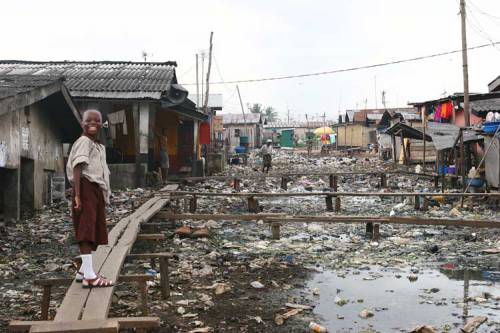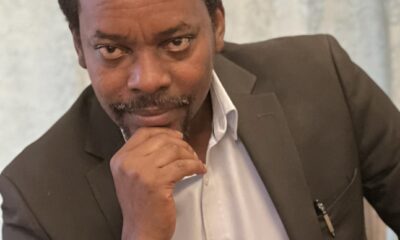National Issues
The More Things Change, The More They Stay The Same? -By Jaye Gaskia


A poor community in Nigeria
This will be very short. This ‘government of change’ and its ‘governing party’ never cease to amaze.
The Vice President comes out to announce that they have started making their promised N5,000 monthly payment to indigent families as part of their much-trumpeted [and I am using trumpet because all puns are intended] Social Investment Program.
As the late Abami Eda, Fela will say, ‘Just like that?’ I have a few pertinent questions to ask: Who are these one million indigent Nigerian families? What criteria were used in selecting them? Who prepared the criteria? Who undertook the selection? Where are they located? When were all the processes and procedures put in place? How were they paid? Which banks were used? Who selected the banks? What criteria were used for the selection of the banks and other payment systems? How were the beneficiaries registered?
N5,000 to one million indigent households monthly is N5bn monthly, and N60bn annually. This is huge; it is money that, if well spent and appropriately targeted, can help to reflate the economy and spur growth.
Yes, we know this, and it is why we welcomed the idea of Social Investment in the first place. You only need to go to Lain America, the only continent to have actually succeeded in halving poverty and dramatically reducing inequality, to see the result of social investment that is well articulated.
But as we now see from the series of corruption allegations with respect to the funds received by the Presidential Initiative on the North East [PINE], we also know that good intentions without a plan and a structured mechanism for transparency, accountability and popular participation, simply become the arena for grand looting.
So once again we ask the question, how was this magic performed? How open, transparent, accountable and participatory has the process been thus far?
And before I am asked what my proposal is, let me be clear: my proposal is already implicit in the questions that I have raised.
You require to put in places teams, processes, mechanisms and structures to develop and administer the criteria for selecting both beneficiaries and participating financial institutions and systems; you need to register and assess participants; you need to provide incentives to ensure that the funds are utilised in a manner that benefits the economy – go into purchase of locally made/manufactured goods and services for instance; you need to involve several agencies [MDAs] of government at Federal and State levels; you need to have a coordination mechanism in place for this collaboration; you need to involve and include the private sector and actually give preference to local private sector; you need to put in place a mechanism for monitoring and evaluation; and you also need to ensure that all of these processes take place in the open, and that we do not have a situation where everything is wrapped in secrecy and the VP merely comes to announce the supposed outcome to us.
It is worth mentioning that this governance shrouded in secrecy was the way governance was undertaken in the past, it was a major matrix for corruption, and one would have hoped that a government that promised change, and a regime that promised that ‘it will no longer be business as usual, would have behaved and conducted itself differently!
Okay sorry, so this did not turn out to be short after all!
Jaye Gaskia is Co-Convener of the Say No Campaign (SNC) and Citizens’ Action To Take Back Nigeria and National Coordinator of the Protest to Power Movement.

















